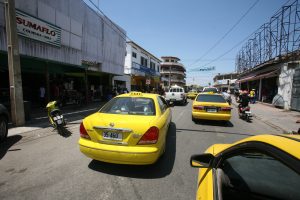Twenty-three years after its independence, Timor-Leste confronts fundamental questions as it prepares to join the Association of Southeast Asian Nations (ASEAN) at the bloc’s summit later this month: namely, what value does it bring to regional cooperation, and how will it transition from an ASEAN observer to a constructive partner? Beyond the political and moral symbolism of its long-awaited accession, this depends on Timor-Leste’s regional strategy and practical capacity for partnership.
While Timorese leaders regularly position the country as contributing to international peace and security, the country remains unfamiliar to regional audiences beyond its independence story. The disconnect between the rhetoric and reality is considerable. The country’s vocal international advocacy contrasts with its persistent development challenges, an unclear regional strategy, and weak domestic political institutions.
Effective regional engagement and cooperation typically involve mutual problem-solving on shared interests. Countries build influence through knowledge, unique perspectives, or strategic positioning that advances regional objectives. For Timor-Leste, this will require the nation to evolve from a passive observer to an active contributor, informed by its circumstances.
In attempting to do so, it faces a number of significant challenges. The first is the severe economic pressures that have shaped Dili’s foreign policy and capacity to engage regional partners. Timor-Leste’s $18 billion Petroleum Fund is the country’s most substantial asset, but energy production has largely ceased. The fiscal deficit is projected to reach 57 percent of GDP in 2025, with the Petroleum Fund financing 73 percent of government spending. Current withdrawal patterns could deplete the fund by 2035. Without dramatic economic reforms or the creation of new revenue sources, the country faces fiscal collapse within the next decade.
Most government spending funds social protection, security, and infrastructure, while human and social development remain chronically underfunded. The country’s dwindling resources suggest that regional cooperation could be critical for its survival.
Instead of developing alternative economic sectors, political leaders have pursued grand projects – casinos, special economic zones, and infrastructure – that have delivered minimal benefits to citizens. Recent student protests highlighted this disconnect, when they challenged the Parliament’s decision to spend $4 million on luxury cars and on lifetime pensions for former officials rather than funding basic services. Forty-two percent of the population lives below the poverty line, the second highest in the region after Myanmar, with 48.3 percent experiencing multi-dimensional poverty.
Despite these constraints, Timor-Leste possesses underexplored assets that could form the economic and political foundation of its regional contributions. With 74 percent of the population aged under 35, the country has demographic potential that could spur domestic development and regional innovation.
The country has one of Southeast Asia’s most intact ecosystems, offering potential for leadership in conservation and sustainable development. Its cultural heritage as a unique Austronesian society with Portuguese and Indonesian influences is a potential asset.
However, realizing this potential relies on institutional capacity that remains severely constrained. The politicization of the government bureaucracy has fostered instability, with development benefits largely captured by political elites, while foreign policy authority is centralized in the presidency. Entire administrations across all ministries are replaced with each political transition, undermining institutional continuity, and the majority of government employees work on short-term contracts. Many officials view positions as temporary appointments tied to political cycles rather than careers in civil service. For a country of 1.3 million people, these disruptions create disproportionate governance challenges and hinder institutional development. The focus remains on short-term posturing rather than long-term planning, delivery and development.
Moreover, the country lacks indigenous policy research institutions and relies on senior political leaders and external interpretations of its circumstances. This limits the capacity for the strategic analyses necessary for effective development and external engagement.
Where ASEAN serves as a cornerstone of foreign policy for its members, Timor-Leste’s strategy towards Southeast Asia remains unclear. Despite seeking ASEAN membership since its independence in 2002, the country has only maintained diplomatic missions in each ASEAN member state since 2013. This reactive approach suggests membership has served as an end in itself rather than a deliberate means for achieving a wider strategic objective. While Timor-Leste has followed ASEAN’s accession roadmap, the country lacks its own national strategy and priorities for regional engagement.
For more than a decade, Timor-Leste has prioritized ties with Portuguese-speaking nations through the Comunidade dos Países de Língua Portuguesa and Pacific groupings, while managing complex relationships with Australia and increasingly turning to China for infrastructure development. Without strategic prioritization of these relationships, multiple commitments compete without coherence. Given Timor-Leste’s geographic location, economic constraints, and limited institutional capacity, the question arises as to whether ASEAN engagement should take precedence over its other dispersed commitments.
Yet, recent inconsistent positions on Myanmar and frequent shifts in alignment on Palestine reflect greater familiarity with broad international advocacy, rather than the complexity of regional political dynamics. Accession to ASEAN will provide legitimacy and greater opportunities for participation, but the extent to which it generates development or investment that translates into tangible outcomes – economic development, investment, or regional influence – remains to be seen.





























